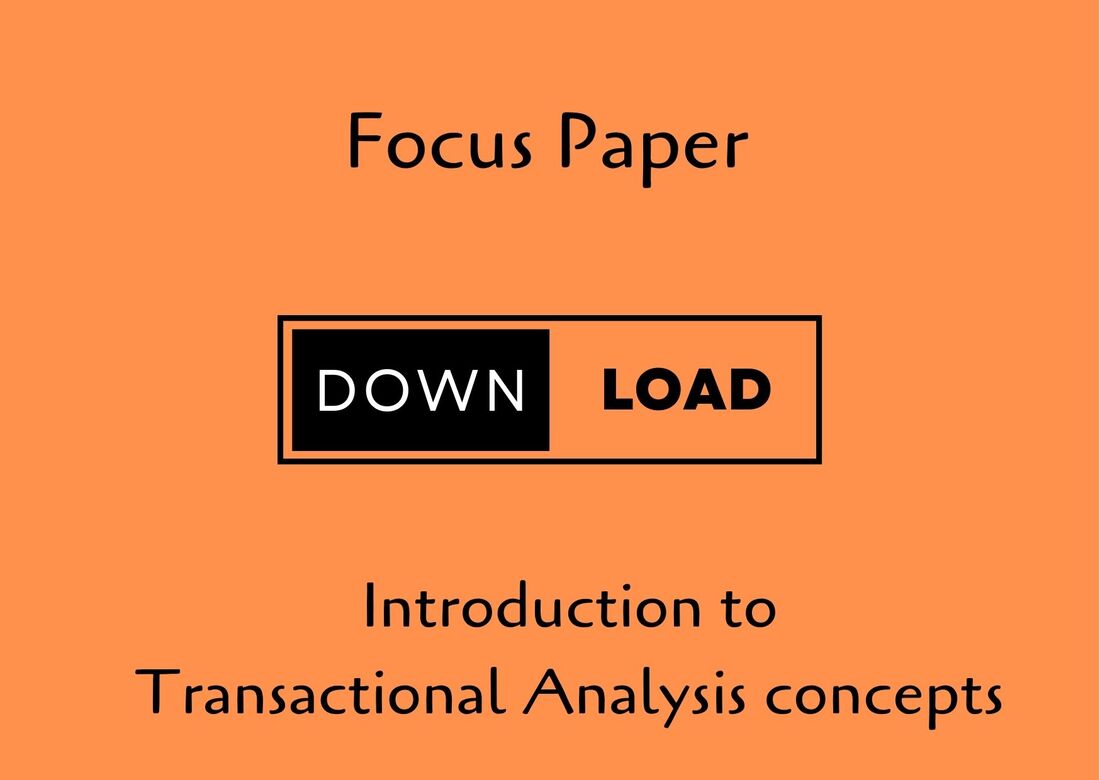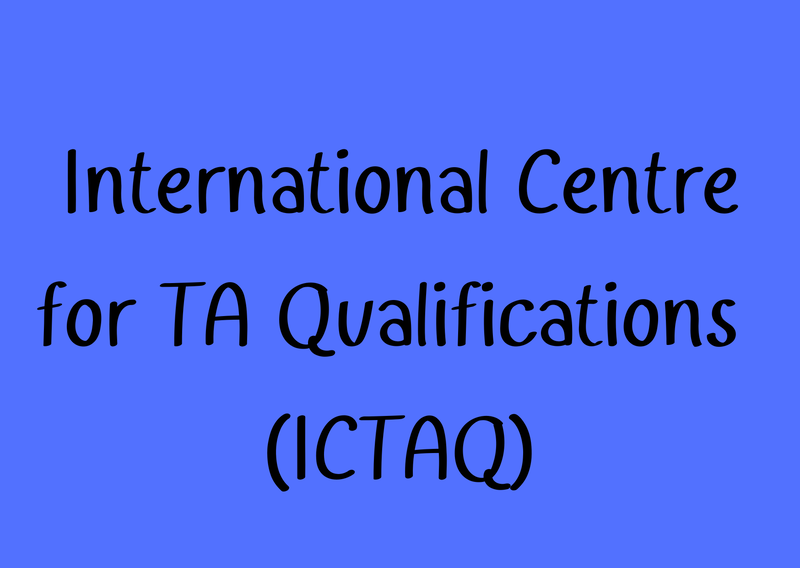ENDINGSI often find in my organisational work that many individuals, teams and organisations do not pay enough attention to endings. When a person leaves a team, company or even country if they are going to work abroad, it is really important that the ending process is conducted effectively.
If not, the person who leaves can feel “out of sorts”, as if something is not finished and the team members who are left behind can feel the loss keenly and take time to get back up to speed again and move on. The leaver may feel keenly the social pain of the ending. It may be due to embarrassment, or a sense of sadness at the loss of a friendship group or the loss of status in a community. The distance felt psychologically at the separation may linger for a long time, and affect how that person behaves within future groups or teams. Correspondingly, the leaver leaves behind a gap – Shakespeare referred to Banquo’s ghost. After Macbeth had Banquo killed, at a banquet soon after Macbeth sees Banquo’s ghost covered in blood. Banquo’s presence was felt and ‘seen’ by Macbeth, even though he had been killed. In the context of modern day organisations, this example might be overly dramatic ….. and yet many teams struggle with the ‘phantom’ of a departed member who continues to play an active part within the group dynamics. The level of upset the phantom causes will depend on the manner of their departure – did the crash out of their own accord, or were they ‘managed’ out in a way that was not communicated well to the team members? Did they simply fade away without the recognition of a formal ending? Or was their leaving marked by a card, a gift and a few kind words? In Transactional Analysis (TA) we have a model called Group Imago. This is a “psychologically held” image or picture that we hold as individuals, about our place in the team in relation to the leader and other members of the team. This image is unique to us as individuals: how I may view myself in the team is not necessarily how another team member may view me. Eric Berne (1966) the founder of TA, describes four stages of group process: Provisional, Adapted, Operative and Secondarily Adjusted. Teams can appear to get stuck at different stages and some simply do not get to the fully effective functioning stage of Secondarily Adjusted. This is where all members complement each other’s strengths, where the individual members work for the team goals and the leader guides all towards his/her overall vision with skill and understanding of group and individual process. Other writers have built on Berne’s work, and Clarkson (1991) describes destructive and constructive leadership behaviours at each stage. She also compares this psychological model to the sociological model of Tuckman (Forming, Storming, Norming and Performing). Lecoursiere (1980) added Mourning to Tuckman’s model and it is this stage which I want to focus on here. TA teaches us that in the rules of communication, the psychological level takes precedence over the social one. Psychologically, the team has to say goodbye and to negotiate the relevant grief processes. The leader has a responsibility to keep the team focused on saying goodbye, and not let the leaver fade or slip away. The problem is, many people are not comfortable at saying goodbye and may run away from the process – this can leave them with unresolved issues and the team with a “gap”. Berne (1963) said “a phantom is … left whenever a well-differentiated member leaves a group and persists until the mourning process is complete if it ever is” (p 225). Sometimes, individuals try to avoid the pain of this period by making the team “bad”, picking on the leader and/or leaving the group early by physically getting sick or psychologically by denying that the team was important to them. The resulting harm and possible long-lasting damage this can cause is better to be avoided. When a person leaves a team or group, the leader in particular needs to focus on the possible consequences of their departure. They need to consider whether a phantom will be left behind in the team and if so, how will they manage it? The effective leader understands the importance of “leaving ceremonies” – a presentation; a gift, a chance to recognise and honour the contribution of the leaver etc. Recruitment processes put in place so that neither the leaver nor the team need to worry about any ensuing gap in the structure. These processes mentioned above will contribute to a smooth transition process for the team, and an ending for the leaver which is satisfying, complete – and enables them to move on to their next challenge with strength and enthusiasm. © Tongue (2012, 2024) For references, please contact Lynda Tongue on [email protected]
0 Comments
".. For behind each racket, however phoney it may seem, there are real feelings or perceptions of another kind which the individual is not allowing himself to be aware of in the present because they were prohibited in the past" (FANITA ENGLISH, 1971) Rackets are tricky things. I don't mean those of the tennis variety - anyone who knows me will know that sport is not my thing. A good long walk with the dog by the sea is more like it for me - or when I get the chance, a really good fling on the dance floor clears my head and settles my soul.
What I mean by Rackets, is the Transactional Analysis term for how we sabotage ourselves in our head. We are not even conscious most of the time, that we are doing it. We behave in ways we decided long ago in our past were effective strategies for us to get by in the world. These behaviours become so ingrained, we take them as reality, rather than a belief we have constructed. Maybe in our family expressing anger was frowned upon (little girls especially typically get this message from parents). We are told to keep quiet and not show our feeling of frustration. We may come to learn that expressing anger is not acceptable, but being tearful is allowed, or being stoical, closing down, following that British code of 'stiff upper lip'. All that is fine. Anger is not. But repressed anger has to go somewhere - and it is often 'swallowed', repressed to level eventually where it affects our health. In these situations as a child we learn to be stoical in order to get attention and praise from the big people in our lives. Or we learn that if we start crying as a way to release our feelings of anger we are comforted, held and reassured. So now when we feel legitimately angry we substitute that sense of stoicism or we cry instead of being able to process our anger in ways that will bring about change. Because repressing anger equals not dealing with it, it is not resolving the issue. By not telling someone that what they have done has provoked an angry response the situation is likely to be repeated. We continue to be stoical or cry when we should be sorting out the issue. We disable ourselves in this way. The circular thinking element comes in when we as small children needing to fit in with the big people, develop beliefs about how we need to be in the world. The belief "I must not show anger, it is not safe for me" leads us to substitute another behaviour, which may be to cry when we feel angry. Crying may then be reinforced as 'good' - the big people like it and comfort me. So I learn that crying is good, showing anger is not - the belief "I must not show anger" is then re-inforced. So years later, when grown-up and out in the world, we have a problem with satisfactorily resolving a situation which has left us feeling angry - because we have not learnt how to channel our anger in ways that bring about a solution. We go round and around the circle, it is as if we have put ourselves behind bars, imprisoned in behaviours of our own making. We layer our emotions - we cover sadness with aggression, anger with tiredness. We can break out of the bars that bind ... becoming aware of the signs, the triggers, the sensations in our body the thought processes we go through. There are concepts in TA which combat the level of racket thinking and behaving, that free us, that ground us in the present - paying attention to the reality of today and not living in the past, in a dream or trance. But first, we need to understand the concept underlying the circular thinking - in order to break out - we need insight. English, F (1971) Rackets and Real Feelings: The Subsitution Factor Transactional Analysis Journal, 1971, 1(4), 225-230 I first met Jean through her wonderful work which spans all four fields of TA application. I then met her in person at a UKATA (then ITA) conference in 2004 in Reading.
I had been fully committed to TA for two years by then, and was a contractual trainee, attending my first conference. I went to what was called an Institute (all-day workshop) run by Rosemary Napper and Trudi Newton and was thrilled to realise Jean was in the group. I was also slightly unnerved by it too! I found myself in a syndicate group with Jean by chance (honestly, I didn’t elbow my way in!) and felt her warmth right from the start of our brief encounter. During that time, she found an opportunity to give me a bullseye stroke, one that she seemed intuitively to know was really going to land with me. I could pretend I don’t remember what it was ….. but I do because the impact of a stroke like that, from a person I completely respected has stayed with me and is with me still all these years later. There followed encounters at many UK conferences (she was a big supporter of the IDTA conferences held from about 2003 to 2009) as well as conferences in San Francisco and Nashville, Edinburgh (where she celebrated her 80 birthday addressing the many who had come to wish her well by standing on a chair as she addressed us), and probably other places around the world too. In a large open space process in the 2005 Edinburgh conference, I remember her quiet dignity and fortitude in the face of anger directed towards her from a participant. It was the day after the London bombing and its impact was keenly felt throughout that conference. She maintained a quiet presence when many of us wanted to jump to her Rescue. Which of course she didn’t need, as she herself managed the turbulence with grace and presence. I remember her mischievous sense of humour – she made me laugh out loud in Nashville when I complimented her on her Halloween outfit. She promptly rolled up the waistband of her skirt in order to show off her legs! I can’t remember why this made me laugh so much, but it doesn’t matter, because this for me sums Jean up – her warmth and generous spirit made people feel good around her in ways it is hard to define. She was a pioneer in the TA educational field. Her passion for educating parents and teachers, as well as TA practitioners was driven by her care for the younger generation – for their wellbeing and a desire for them to reach their full potential. I was with her for the last time in Raleigh USA, 2019. She was physically frail, and mentally strong – asking me searching questions about myself and my TA practice, and sharing some of what was happening for her too. And once again, standing in the foyer of the hotel, a bullseye stroke from Jean to send me on my way with tears in my eyes. She touched so many lives, and made them all the better for it. The heading for this blog is the title of a book by Primo Levi, published in 1982. An Auschwitz survivor, he is probably best known for The Periodic Table (1975) and for his account of the time he endured in Auschwitz published in 1947 titled 'If this is a Man'.
I have been aware of him for many years now. I have a soft spot for inspirational quotes and 'If now now, when?" comes to me at times when I find myself hesitating, procrastinating or feeling stuck. I find it helpful as a way to provoke movement, make a change etc. These sayings are useful as a self-help strategy - but even more useful is to understand the root of the procrastination or 'stuckness'. As a Transactional Analyst, I know there are several concepts to help me help myself, or a trainee or supervisee. Drivers/Working Styles: those with Be Perfect put off doing something until they think they can do it perfectly. By which time, the opportunity might be missed or long gone. Try Hards continue to try hard, because committing to action means they will not be 'trying hard' anymore. Please People worry that the action they are thinking about taking might not please people .... and that is a problem for them. Be Strongs do not have problems - they think - they get on with the task but are baffled by people and the fuss they make and do not always understand what others might need from them. Hurry Ups do not stay in the moment long enough to really know what matters to them - they busy themselves with tasks and in that process ignore the quiet voice inside saying "pay attention, this situation is important for you". Rackets - a closed loop intrapsychic system where we keep ourselves stuck in a thought prison of our own making. Contaminations - faulty beliefs about ourselves, others or the world in general which affect our behaviour ("They will not promote me, there is no point in going for that promotion"). Life Positions - I am not good enough to make that change, seize that opportunity, make that decision ...... What if you knew you were good enough.....? Injunctions - received as an infant from the Child ego state of your Mum and/or Dad: don't be important, don't succeed etc. Injunctions as early conditioning lurk away beneath the surface and colour our decisions, make us miss opportunities. Awareness is the key which helps us unlock energy for action, helps us to be free of harmful aspects of our script and helps us to recognise our personal power. I finish with another favourite quote, this time a Chinese proverb - "The best time to plant a tree was 20 years ago. The second best time is now" What are you waiting for? Unlike other lockdowns, during this one we have made the decision to continue to look after our 4 year old granddaughter one day a week. Last week, she taught me a valuable lesson.
Life is such a challenge at the moment. The deaths from Covid rising to terrifying levels, the economy crashing, thousands of people made unemployed. New variants of the virus and long-Covid to add into the mix. And the fact that it is January, and the weather is grey and cold. I have strategies to help me at times when I am feeling stressed or low, and I am lucky enough to have plenty of interesting projects to keep my mind active and engaged and I also get therapeutic satisfaction from knitting and crochet. Even so, the current strictures of lockdown can bring about the odd day of low mood. After our granddaughter's visit last week, I began to realise that I had been doing too much 'Adulting'. Too much of the Parent and Adult ego states, and not nearly enough of letting my Child out to play! In an email exchange with a friend, I described our day with Evie and I wrote "We had a great day with Evie yesterday, and were completely shattered by 6 pm. Drawing, hide and seek in the house, out for a walk following "dinosaur footsteps" and running away from monsters whilst being a tiger kept us on our toes all day long. When all is said and done, being reminded of what is important in this world is the tonic that will get me through this worrying time." While the intent of my words was in response to my friend and I hoped to give some support, from her reply to me I realised that I had been neglecting my Child ego state. (This example also speaks to the point that while offering strokes to others, we benefit ourselves too!). And I am probably not alone in this. In no way do I mean to minimise the incredible pressure many of us are under at the moment. Home-schooling three or more children while doing your own work from home and running a house-hold requires positive Parent discipline and Adult problem-solving in quantity. So does front-line work in hospitals and care homes. Easy to neglect the needs of your Child ego state. But I am suggesting that some time be reserved for the care-givers to care for themselves, to recognise what they need to do in order to be able to "fire on all cylinders". So whether it is dancing, candle-lit bathing, painting or indeed dinosaur footstep following, my challenge to you today is to find 30 minutes to yourself, for this and every day following. And tomorrow, I go back to being a tiger again .......... This week I ran an online workshop on Power Dynamics as part of the TA Tribe Foundation programme.
We focussed mainly on ego states and transactions - how we invite others to take personal power from us, or how we might take it from others. We explored symbiosis - how we might get into unhealthy relationships where neither party are using their full set of ego state resources. We could have looked more closely at psychological contracting - understanding we have a right (power!) to ask for what we want. And we could have also looked at Rackets (loops of self-limiting beliefs). We only had six hours! And what we did cover facilitated interesting discussions and sharing of learning and experience. We briefly talked about discounting - when we leave people out of a conversation, event, project etc we use our power in a negative way. The opposite - accounting - is much more powerful! Including, encouraging, supporting people to contribute. We also briefly talked about strokes and stroking patterns - how we do not 'hear' some strokes (a stroke is a unit of recognition - so a thank you, being listened to, appreciated). Filtering out strokes is a way of preventing ourselves from being potent - ie, powerful! Permissions are powerful. The permissions we give to others can have a profound affect. I was given a 'bullseye' permission by Jean Illsley-Clarke (a much respected human being and TA trainer and author) when I first met her in 2004 that I treasure and have never forgotten. Do not underestimate the power of permissions! What I mean here, is a supportive, verbalised (but not always) recognition of our beings and our abilities. A manager actively listening to a team member could be seen as that manager giving permission to think. Encouraging someone to contribute to a team meeting may be a permission to belong etc. In this blog, I want to concentrate on the permissions we might give to ourselves. This is a self-supporting way of increasing our personal power, and a very positive way of accounting for our personal resources. We all know that this year has been tough for many people. We know that Christmas is a busy and sometimes stressful time of year at the best of times. And these are not the best of times. So, I am offering you a chance to give yourself some permissions:
I have been preparing for the next Tribe and TAPs workshops lately and I am curious about the connections between them - Power Dynamics, Recognition, Relationship and Resilience, Group Dynamics and Working with Change. I have been exploring speech patterns, interpersonal dynamics, unconscious processes and states of mind. I have re-connected with Ware's work on Contact Doors - how as practitioners if we listen carefully we can hear clues in the client's speech patterns and choice of words and we can respond in ways which are helpful, and avoid the 'trap' door - which is not helpful at all.
As I write this in the middle of October, there is a lot going on in the world ..... which is putting it mildly. There is such uncertainty, confusion and downright scare that we need now more than ever to be able to dive into our resources to support ourselves to get through it. We need people in our lives who will listen to us as we share our fears and concerns. Those of us who are 'helping professionals' - teachers, coaches, managers, consultants, health professionals etc - also need to apply active listening skills in order to be able to judge when a client (or a friend) is getting close to a crisis of a personal nature so that we can be of most support. And sometimes it is more appropriate to challenge, to encourage our client to distinguish between reality and fantasy, or to help them remember their skill set, their personal attributes. To help them get back on track. Listening is a very powerful skill! Without careful listening we miss what is being said 'in plain sight' (to mix my metaphors .... or something). If we recognise the speech patterns of let's say a person with a Please People Driver, with practice we can 'meet them where they are' (feelings), and then if appropriate encourage them to stretch into a target place (thinking) and may be the work will be accomplished here. Or perhaps it can be taken further, Ware calls it the trap door (for those with Please People that would be 'behaviour' - if the practitioner goes straight to this the client is likely to shut down. However, if you match (feelings) move (to thinking) and then get to where the work needs to be done (behaviour) then that 'trap' door becomes the 'developmental door' - a place to expand into and where the client needs to focus. Knowing what to listen out for, identifying the driver speech patterns and having a mechanism for progress enhances our ability to encourage personal growth. And fundamental to that skill is that of listening - a vastly underrated and overlooked interpersonal gift. Four or five years ago I discovered the Zoom platform, and before that, Skype had revolutionised the way I was working. I had been conducting supervision and coaching online with Skype since 2008, but Zoom gave me the flexibility I was looking for when running online workshops.
I ran a series of workshops for a Polish group I was running at the time. It was a little tricky to setting into the dynamics of the process of being online with a group, working through a translator and settling my nerves around the technology, but it worked fine. IN 2016 Iaunched TA Tribe. My intention is to make TA training and supervision accessible to all who want it for their professional and personal development. One of the great joys of my TA journey has been the opportunity to visit a range of countries whether that be to run programmes or workshops at conferences. I have trained in cultures as diverse at that found in St Petersburg to that found in Nashville, USA. I recognise this as a privilege and also recognise that many are not able to travel as widely, be that for mobility, caring responsibilities or financial constraints. These days of course, we are also painfully aware of climate change issues. Working online is people and planet-friendly! And then along came Covid 19. The obvious approach for me was to convert my TA training to an online offer. And it is interesting, as I am sure you have also noticed, that out of crisis comes creativity - which brings about change, and in many ways, change for the better. 2020 is a year of change for me and through 2021 I will consolidate that change. The online Tribe programme for those new to TA or for those wishing to brush up on their theory is now available for 2020/21 and starts with the academic year in September. Tribe Advanced Practitioners group (TAPs) also starts in September, and is a monthly, two-day workshop at Diploma level for those preparing for CTA or DTA Diploma qualifications. I am looking forward to working with new people, forming a new group and welcome you to TA Tribe! |
Lynda Tongue TSTA-orgLearning and Development consultant since 1991. Teaching and Supervising Transactional Analyst since 2013. Archives
March 2024
|
- Welcome
- TA
-
Workshops
- 008 Power Dynamics
- 009 Human Beings Being Human
- 010 Psychological Games
- 011 Group Dynamics
- 012 Stages of Group Development
- 013 Analysing Organisations
- 014 Cultural Competence
- 015 Systemic Leadership
- 016 Leading Organisational Change
- 017 Unconscious Processes
- 018 Supervision and the Meta-level Perspective
- 019 Leadership - a Relational Issues
- 020 Imposter Syndrome
- 021 Contact Doors
- 022 The Permission Wheel
- 023 People Watching
- 024 Personality Adaptations
- TA Awards
- Supervision
- Blog
- Newsletters
- Contact
- Policies
- Downloads







